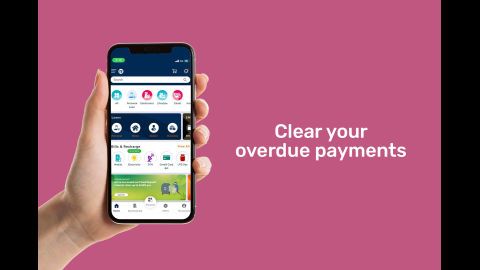A personal loan is a financial solution that helps individuals manage short-term needs such as medical emergencies, travel, or education. It is offered with the agreement that the borrower will repay the principal along with interest over a specified tenure. Many institutions provide loans tailored for various purposes, and repayment has become easier thanks to EMIs, allowing borrowers to pay in manageable monthly instalments.
However, before opting for an online personal loan, it’s important to ensure a steady cash flow, as it directly impacts your repayment ability. If the borrower fails to repay the loan on time, it may lead to penalties, a drop in credit score, and even legal action, depending on the default terms. Personal loan recovery rules are in place to guide the process, protecting both the borrower’s and the institution’s interests.
Understanding what happens if the borrower fails to repay the loan is crucial before borrowing, as it helps in planning repayments responsibly and avoiding financial stress.
Additional read: What happens to personal loan if borrower dies
However, life is often unforgiving with the surprises it can throw at you. Bankruptcy, a major accident, and other adversities can lead to an unanticipated cash crunch, throwing the borrower into a downward financial spiral. While chances are the lenders being unrelenting on the payment front with several measures at their disposal, it will help you know your rights in such a situation and the probable consequences of failing to repay a loan.
Your credit score nosedives
Every lender sends records of the borrower’s repayment patterns to CIBIL and other credit rating agencies in India. Thus, erring or defaulting on EMI payment brings down your score by a certain percentage. The decision to grant a loan depends on the borrower’s credit score; a score on the lower side is equivalent to a risky profile, somebody the lender wouldn’t be pleased to help.
Moreover, if you’re a serial defaulter, chances are a lender would start considering you a classic NPA. The whole episode surely won’t go down well with the lender. Even if the borrower gets past with a loan, the interest rate charged will be much more than the one imposed on a good credit profile.
Reminders by banks become routine
Every lender usually allows a slip on one or a maximum of two repayments. But if the problem persists even after three consecutive months, the bank would send a notice to the borrower, urging him or her to pay up soon. A borrower is declared a non-performing asset (NPA) after defaulting for 90 days straight, which potentially bars him from getting any loan in the future.
The lender might resort to legal action
Not adhering to the reminders sets off a chain of events that usually starts with the bank taking to a legal notice.
Additional Read: What is annual percentage rate (APR)
The lender can impose a penalty
In the case of multiple loans, a lender can also impose a penalty on the defaults and late payments. This usually applies to an unsecured loan where the lender doesn’t have any collateral as a guarantee against non-payment.
Collateral gets affected
While this is the last resort, banks can rightfully take possession of the collateral. They can auction it to recover the loan amount if you fail to repay the loan.
What rights do you have?
If you happen to find yourself in similar muck, know that redressal measures can be of help. You can talk to your lender about it, who can suggest ways of paying up the EMI on time. One trick is to reduce the EMI value by spreading it over a longer tenure.
You can also consider loan refinancing (debt consolidation) as another option. This allows you to apply for another loan to service all or a part of the previous loan. But bear in mind that the interest payouts and the EMIs should be lower than the original loan. Using our personal loan EMI calculator will help you estimate your monthly repayments in advance.
You can also use the EMI calculator available on the website to find your exact EMI amount. You can enter the required amount, tenure, and loan interest rate before you opt for a personal loan.
Bajaj Finance provides pre-approved offers on a host of loan products. These include home loans, personal loans, and business loans. With pre-approved offers, availing of finance is a hassle-free affair. Know your pre-approved offer by sharing a few basic details.
DISCLAIMER:
While care is taken to update the information, products, and services included in or available on our website and related platforms/websites, there may be inadvertent inaccuracies or typographical errors or delays in updating the information. The material contained in this site, and on associated web pages, is for reference and general information purpose and the details mentioned in the respective product/service document shall prevail in case of any inconsistency. Subscribers and users should seek professional advice before acting on the basis of the information contained herein. Please take an informed decision with respect to any product or service after going through the relevant product/service document and applicable terms and conditions. In case any inconsistencies observed, please click on reach us.
*Terms and conditions apply








